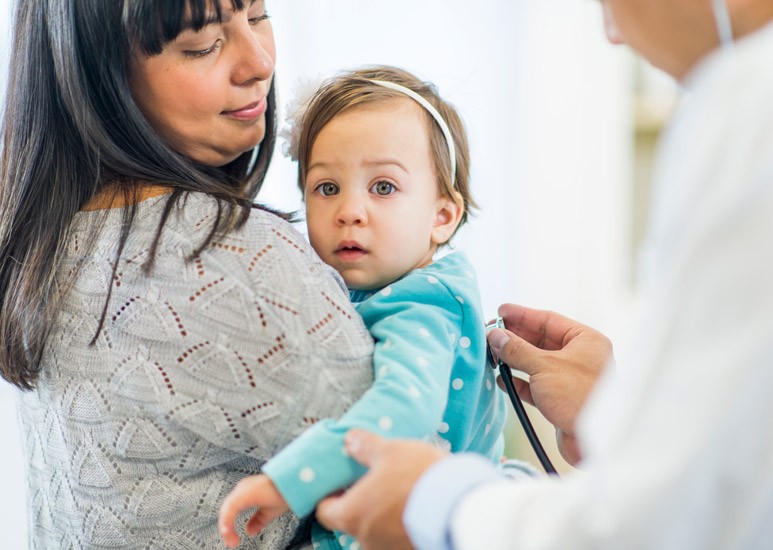As a parent, it's hard to predict when your child will need medical attention.
“Accidents and illness don't always occur at opportune times, or during normal business hours,” says Dr. Suzanne Grannan, pediatrician and physician lead at Community Physician Network. “More often than not, parents are faced with the question: Should I take my child to the ER or a local urgent care facility?”
From MedCheck Urgent Care to Virtual Visits, we make it easy to get the right level of care when you need it.
Common Conditions
Respiratory Illness
ER: If your child is having difficulty breathing or is experiencing chest pain.
Urgent care: If your child has a severe sore throat or is experiencing cold, flu, or allergy symptoms.
Fever
ER: If your child is younger than two months and has a temperature of 100.4ºF or higher.
Urgent care: If your child is older than two months and is not responding to fever-reducing medicine like Tylenol or Motrin.
Falls and Broken Bones
ER: If your child has fallen from a height. Also take your child to the ER if you believe your child has a broken bone; they have an open or visible fracture; they've lost consciousness (even for a brief moment); or your child is vomiting as a result of a fall.
Urgent care: Minor falls without loss of consciousness, vomiting or change in normal behavior. Urgent care is also the place to go for believed strained or sprained ligaments.
Lacerations and Burns
ER: If there is a deep cut on your child's face and it looks as if it needs stitches. If you notice severe bleeding or possible third-degree burns.
Urgent care: If minor stitches are required on areas of the body besides the face, like the arm, finger or leg.
Earache and Eye Infections
ER: Your child has a loss of hearing or loss of vision.
Urgent care: You think your child may have an ear or eye infection.
Sting or Bite
ER: Your child is having an allergic reaction to a sting or bite.
Urgent care: Most often, there is no need to bring your child to urgent care. You can treat this at home with over-the-counter products.
Dr. Grannan reminds parents to contact the doctor on call at their pediatrician's office first before rushing their child to the ER or urgent care facility.
For more about care options, visit our Connect to Care page.
